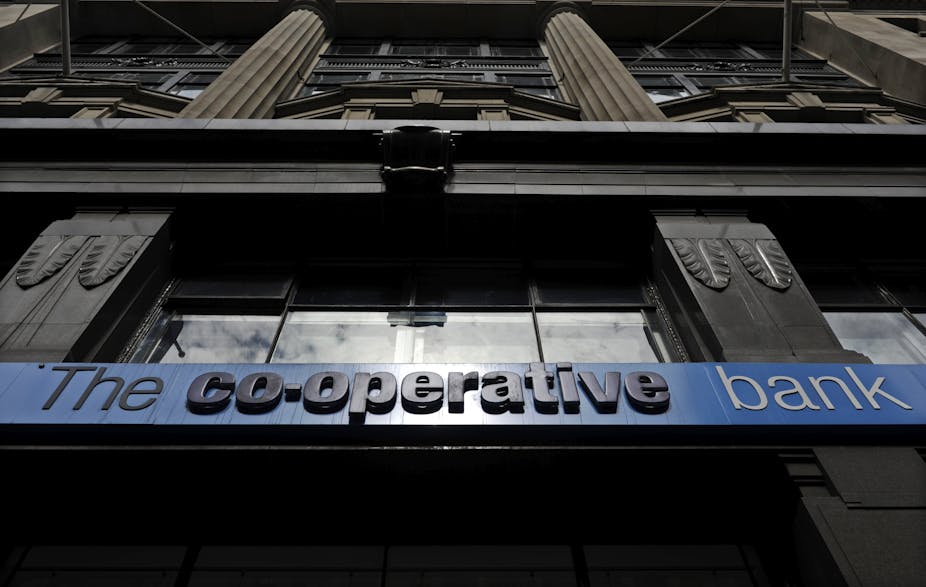Just when members of the Co-op thought the group’s increasingly farcical situation was coming to an end, it was revealed that the bank had overlooked £400m in fines for mis-selling payment protection insurance (PPI), breaching the Consumer Credit Act, and various other misdemeanours.
This was an unpleasant surprise, and not just because of the large figures involved that have caused the bank to delay publishing its annual results. Rather, what really shocked the Co-op’s members was the revelation that the apparently “ethical” bank had mis-sold PPI to its customers, just as its commercial competitors had done.
It is staggering that banking executives could simply overlook £400m worth of fines in an industry when all their peers were routinely making similar payouts. It is like being surprised there are flood waters lapping at your door long after your neighbours have fled to higher ground.
It may seem the height of carelessness to overlook £400m worth of potential fines. However, it could be the result of a common cognitive trap called “anchoring” that many senior executives find themselves caught in. Decision makers who focus their attention on one issue they initially think is important, end up disregarding other – sometimes more vital – pieces of information.
In the past six months, executives at the Co-op have focused on the need to recapitalise the bank due to regulators increasing capital requirements. This meant they put significant amounts of effort into seeking new funding through the bail-in process.
But by doing so they could have overlooked other important information. The situation is a bit like a tennis player having half a dozen balls coming towards them at once. The player inevitably focuses on returning one ball over the net and miss the other five.
Overlooking the fines could have serious consequences for the group. Clearly there is the £400m that needs to be paid to the regulator. But an even greater cost is the potential further decline of the bank’s legitimacy in the eyes of various stakeholders. The fines show this “ethical” bank was engaged in many of the same practices that supposedly “unethical” competitors have been vilified for. The new senior management may be worried they are dangerously close to the 7% capital requirement. And staff are bracing themselves for further cost reduction exercises.
Co-op members might well ask why this bank controlled by US hedge funds still bears the Co-op brand and why the troubled group still has a 30% stake. This leads to the bigger question: how long the bank will retain the “co-op” part of its name.
Properly cutting ties between the bank and the rest of the Co-op Group would be a bold move but it certainly has much to recommend it. Ditching the bank would help the troubled Co-op Group to shore up its balance sheet and the new owners would be able to operate it in a more overtly commercial way.
But such a move would not be all positive. It would mean a reduction in alternative business models in the banking sector – the presence of a mutually owned bank keeps other commercial banks on their toes – and it would also reduce the degree of real choice for consumers.
Ironically, what’s right for the “ethical bank” might not be the best move for everyone.

